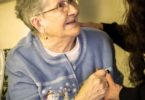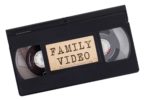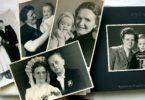Oral histories are a crucial part of your genealogy research. Whether you are conducting them or reading them, you will get invaluable information from them that you almost certainly won't find anywhere else. The details from oral histories can help guide you to new avenues of research, fill in personal details and information gaps in your family tree, and bring long-forgotten events and people back to virtual life again (and preserve them for future generations).
Most conventional genealogical research advice recommends that you start your family history journey with yourself, then work backward in time through all the people you know personally or know about with certainty. Along the way, one of the first steps you should take as you begin connecting one generation to another is to interview the oldest members of your family. They have information and memories that no one else does and can bring your family history to life in amazing and unexpected ways. You may even solve some long-standing family mysteries just by talking to your older relatives. Maybe they never talked about these mysteries before because no one asked them. You can be the first, and get your genealogy research off to a powerful start.
When we neglect to ask the older members of our family questions about their past, their childhoods, the experiences they had, and the people they knew, this information can be lost forever when they leave this world. You may be able to get some of the facts, like names, dates, and places that they would have given you, by using other sources. However, you will miss out on the personal details only they can provide.
Genealogy is about so much more than just facts. It is about putting together a complete picture of your family history, including filling in the gaps about what type of people your ancestors were, what they were like, and how they lived. It is about making them into real people again, not just names and dates on a piece of paper or computer program. Oral histories are instrumental in re-building long gone people and the times in which they lived.
Don't just interview older relatives who are in your direct line, either. To get the fullest picture of your family history, you need to interview everyone you know who is older than you. This includes aunts, uncles, and cousins of all degrees of relation. You should also interview older relatives who are only related by marriage, as the stories they have to tell will naturally tie into your own family history, as well… and the parts that don't include your family will be interesting tales of the local history of the places where they grew up, and should be recorded for posterity, possibly by donation to local archival repositories in those areas.
Anyone who is still living who is older than you has a story to tell about your family history, whether they realize it or not. Each person's story will be unique, and when you've interviewed everyone you can get to talk to you, you will have pieces to a puzzle that should all fit together nicely to form a highly detailed portrait of your family history. You will get some of the same stories but from different points of view, as well as very different tales from people who knew different people and lived in different places. You will also likely get some information on your ancestors whom you've only read about in census and other old records. Your oral history interviews will give you personal details on what these people were like through the stories told by the people who knew and interacted with them personally.
You can find all sorts of sample oral history interview questions online that you can use when you talk to your older relatives. You may choose to use any of these, or come up with your own set of questions based on what you personally want to discover about your family tree. Or, just ask an older relative to tell you about their childhood or their life story, let them talk, and ask questions as they come to you during the tale.
Be sure to use a voice recorder when conducting these interviews, so you can be sure you're getting all of the information. You may miss some things if you just take notes while the interview subject is talking, and you're scrambling to keep up with them with your pen or pencil. With a voice recorder, you can enjoy the interview as it's happening, giving it your full attention, and go back and transcribe it in full and accurately later.
Don't discount the wealth of genealogical information your older relatives have to give you. While some may be reluctant to talk, especially if they don't know you well, chances are strong that most of them will be delighted to tell their tales. Almost everyone likes it when someone is interested in them as a person and takes the time to talk to them about themselves. Just do it now, since you never know when it will be too late and that information will be lost. Capture it for future generations while it's still available to you. You'll really regret it as the family historian if you don't.
Why Oral Histories Are So Crucial to Good Genealogy, Part 2




